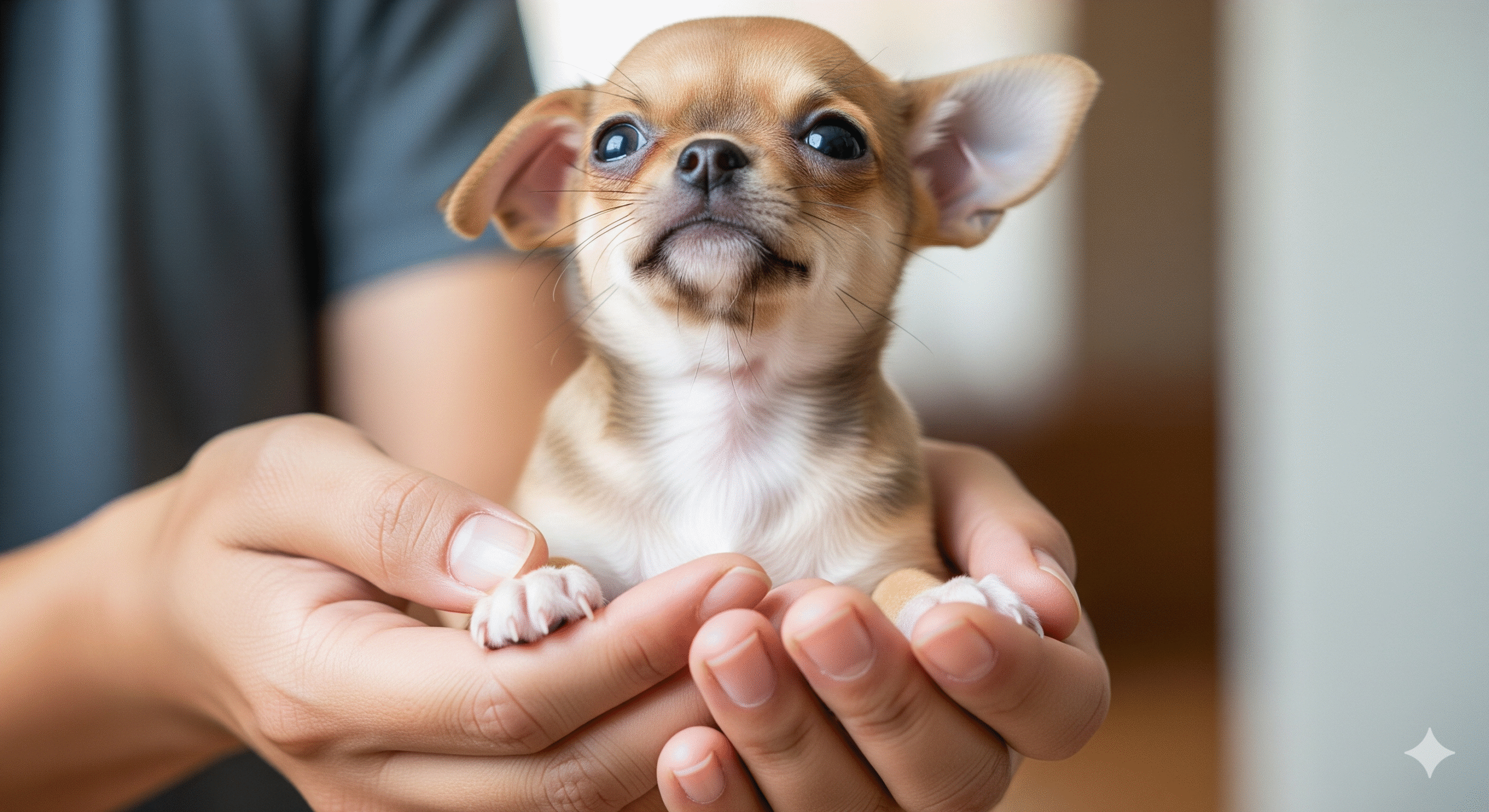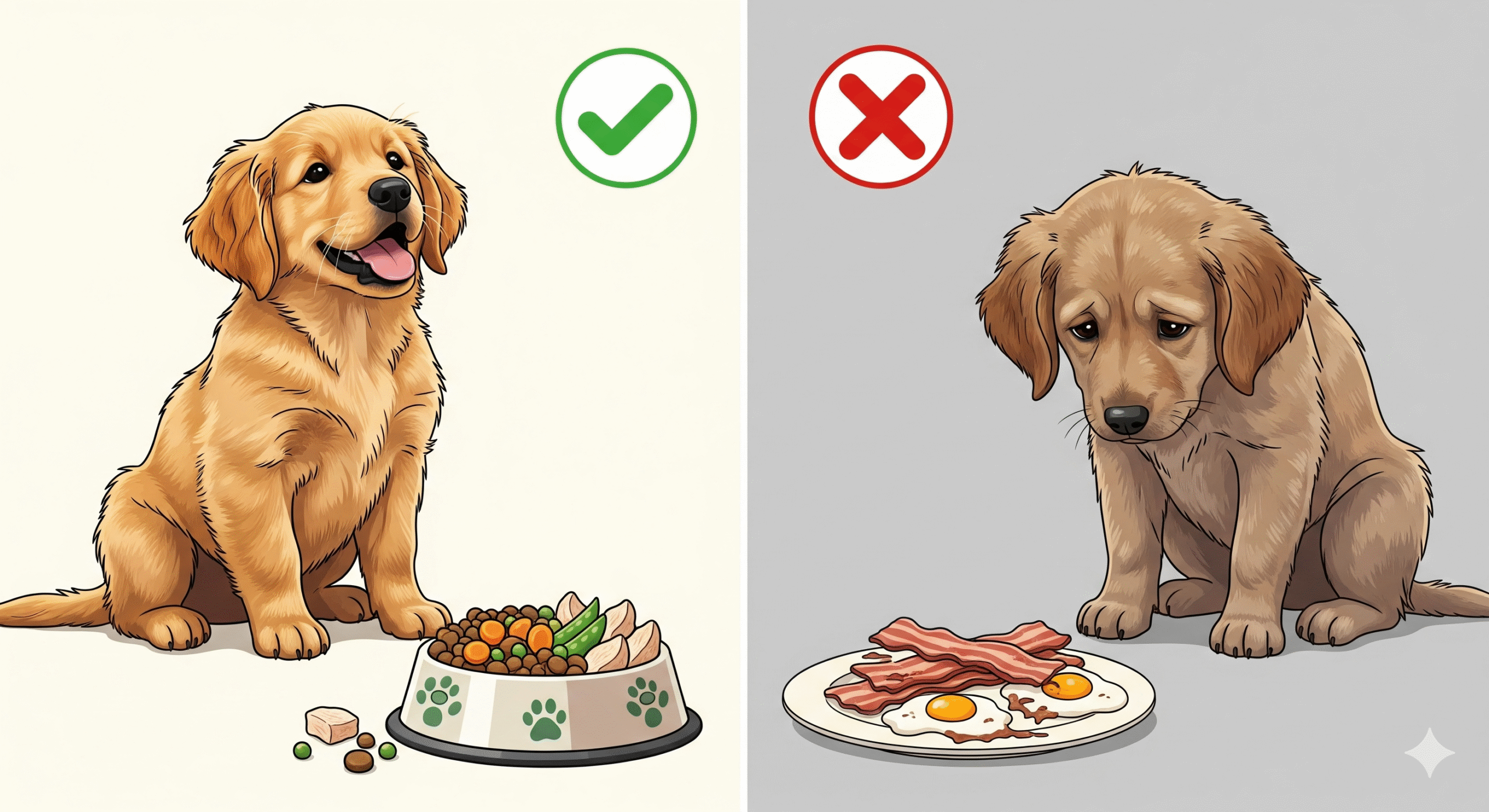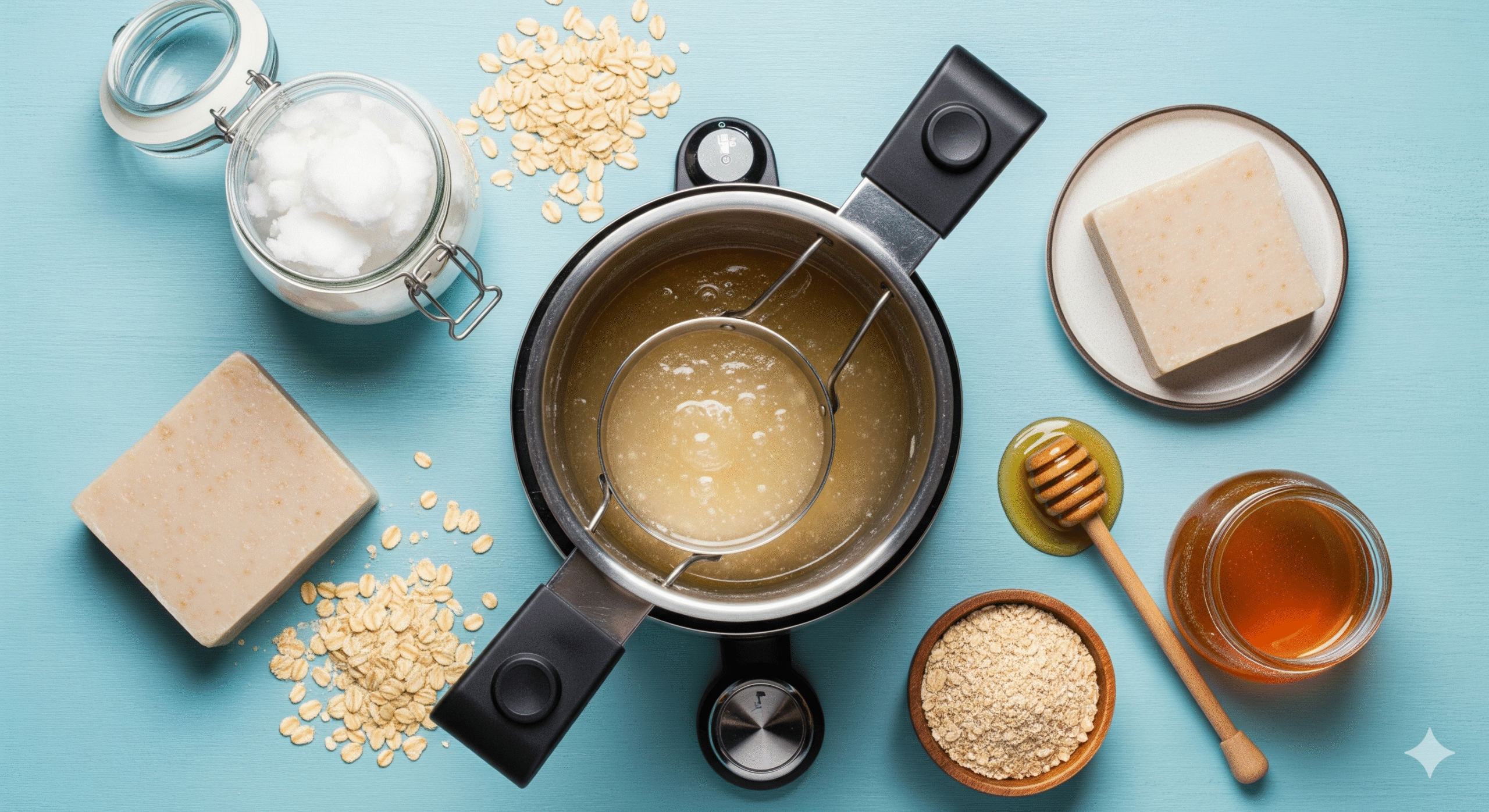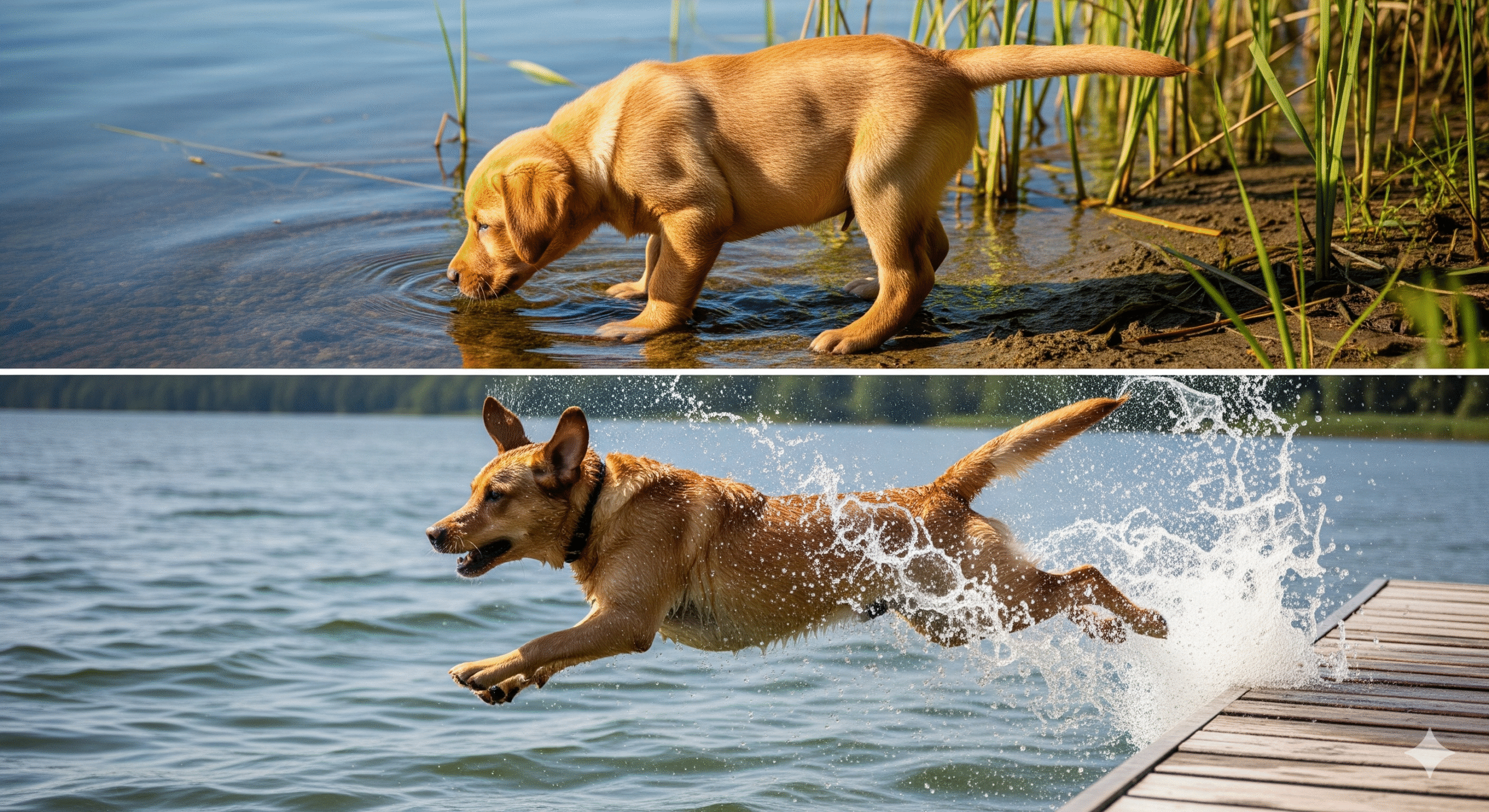Welcome to the world of Chihuahua ownership! These tiny dogs, often weighing in at just a few pounds, pack an enormous amount of personality, loyalty, and sass into their small frames. Raising a Chihuahua puppy is a unique and rewarding experience, but it comes with its own specific set of challenges and considerations. Their small size makes them incredibly fragile, and their big-dog attitude requires a special approach to training and socialization.
This comprehensive Chihuahua puppy guide is your roadmap to success. We’ll dive deep into everything you need to know—from understanding their larger-than-life temperament and navigating their specific health needs to mastering potty training and finding the right gear for your petite pup. Whether you’re a first-time Chi owner or a seasoned small dog enthusiast, this guide will help you raise a confident, well-mannered, and healthy companion.
Understanding the Chihuahua Temperament: Big Dog in a Small Package 🧠
Before you bring your puppy home, it’s crucial to understand what makes them tick. Chihuahuas are known for their clownish, charming, and confident personalities, but they can also be willful and wary of strangers.
- Loyal & Devoted: They form incredibly strong bonds with their favorite person and can become true “velcro dogs,” wanting to be with you at all times.
- Courageous & Alert: Don’t let their size fool you. They are fearless watchdogs who will loudly alert you to any perceived threat, from the mailman to a falling leaf.
- Intelligent & Trainable: They are quick learners, but their intelligence is often paired with a stubborn streak. They will question why they should do something before deciding if it’s worth their effort.
- Prone to “Small Dog Syndrome”: This is not a innate trait but a learned behavior. If a Chihuahua is not properly socialized and trained, they can become overly protective, yappy, and even snappy. This is a result of humans treating them like infants instead of dogs, failing to set boundaries.
Essential Supplies for Your Tiny New Family Member 🛒
Standard puppy supplies often need to be scaled down for a Chihuahua’s petite size.
- X-Small Crate: A small, cozy crate (around 18-22 inches) is essential for potty training and providing a safe den. It should be just big enough for them to stand, turn around, and lie down.
- Harness, Not a Collar: A collar can put dangerous pressure on a Chihuahua’s delicate trachea, which is prone to collapse. Always use a well-fitting harness for walks.
- Small, Soft Toys: Choose toys appropriate for their tiny jaws. Avoid large, hard toys they can’t carry.
- Shallow Food & Water Bowls: Their small faces need easy access. Ceramic or stainless steel bowls are best.
- Puppy Pads & Grass Patches: Due to their small bladders and low cold tolerance, many Chihuahua owners successfully use indoor potty solutions in addition to outdoor training.
Nutrition: Feeding Your Chihuahua Puppy for Optimal Growth 🥘
Their tiny stomachs and high metabolism mean they need high-quality, nutrient-dense food served in small, frequent meals.
- Meal Frequency: Feed your Chihuahua puppy 3-4 small meals a day. This prevents blood sugar drops (hypoglycemia), a serious risk for toy breeds.
- Food Quality: Choose a high-quality puppy food formulated for small or toy breeds. These kibbles are smaller for tiny mouths and have the right calorie and nutrient balance for their fast metabolism.
- Watch Portions: Obesity is a major health risk. Follow the feeding guidelines on the bag and adjust based on your puppy’s body condition. Your vet is your best resource for determining a healthy weight.
- Hypoglycemia Warning: Know the signs of low blood sugar: lethargy, weakness, wobbliness, glassy eyes, and even seizures. If you see these, rub a small amount of honey or Karo syrup on their gums and contact your vet immediately.
Potty Training Your Chihuahua Puppy: Patience is Key 🚽
This can be one of the biggest challenges. Their small bladders mean they need to go out very frequently.
- Consistent Schedule: Take them out:
- First thing in the morning
- Last thing at night
- After every nap
- After every meal
- After every play session
- Essentially, every 1-2 hours during the day.
- Choose a Cue Word: Use a consistent phrase like “go potty.”
- Massive Praise: When they go in the right spot, throw a party! Give them a high-value treat and enthusiastic praise.
- Manage Accidents Gracefully: If you catch them in the act, interrupt with a gentle “oops!” and quickly take them outside. Never rub their nose in it or punish them. Clean accidents with an enzymatic cleaner to remove the scent completely.
Socialization: The MOST Important Task 🗣️
Proper socialization is non-negotiable for preventing fear and aggression. The critical window is between 8-16 weeks of age.
- Goal: Expose your puppy to a wide variety of people, places, sounds, and surfaces in a positive, controlled way.
- How to Socialize Safely: Before vaccinations are complete, carry your puppy or use a stroller. Let them experience:
- Different types of people (men, women, children, people with hats/beards/umbrellas)
- Household sounds (TV, vacuum, doorbell)
- Different flooring (grass, gravel, pavement, tile)
- Car rides
- Puppy Classes: Enroll in a puppy kindergarten class as soon as they have their first round of shots. This is invaluable for teaching bite inhibition and polite play with other dogs.
Common Chihuahua Health Issues to Watch For 🩺
Being aware of breed predispositions helps you be a proactive pet parent.
- Luxating Patella: A dislocating kneecap is very common. Signs include skipping, hopping, or holding a back leg up for a few steps.
- Dental Problems: Their tiny mouths are prone to severe overcrowding and periodontal disease. Daily teeth brushing is essential from puppyhood.
- Tracheal Collapse: A weakening of the windpipe that causes a honking cough. This is why a harness is mandatory.
- Hydrocephalus: “Water on the brain.” Be aware of signs in a puppy: a large, dome-shaped head, lethargy, and seizures.
- Heart Problems: Such as heart murmurs.
Regular vet check-ups are crucial for early detection and management of any of these issues.
Grooming Your Chihuahua Pup ✂️
- Smooth Coat: Requires minimal grooming; a weekly brush with a soft bristle brush is sufficient.
- Long Coat: Requires brushing several times a week to prevent mats and tangles.
- Bathing: Bathe only every 3-4 weeks or when dirty to avoid drying out their skin.
- Nail Trims: Essential every 2-3 weeks. Long nails can affect their posture and get caught on things.
- Dental Care: As mentioned, daily brushing is the single best thing you can do for their long-term health.
Final Thoughts: Embrace the Big Personality 🌟
Raising a Chihuahua puppy is a journey filled with laughter, love, and a few unique challenges. By understanding their needs for proper socialization, consistent training, and proactive health care, you are setting the stage for a wonderful life together. Respect them as the bold, intelligent dogs they are, not as accessories, and you will be rewarded with a fiercely loyal and entertaining companion for years to come.
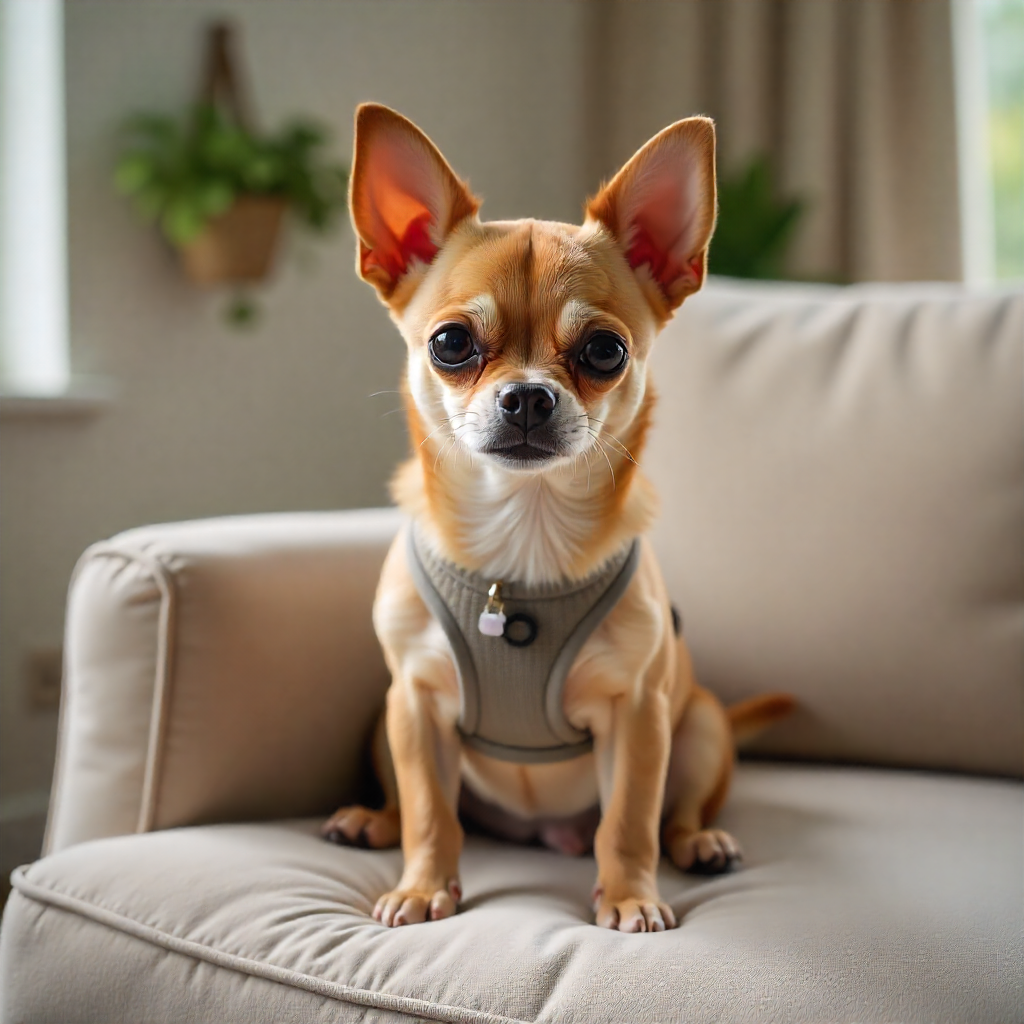
Labradoodles are beloved for their friendly temperament and hypoallergenic coats, which make them a great choice for families with allergies. However, their beautiful curly or wavy fur requires consistent grooming to prevent matting and tangling. Caring for a Labradoodle puppy involves understanding their specific grooming, exercise, and training needs from the very beginning. Beyond coat care, they are energetic and intelligent dogs. For a complete guide tailored to this popular hybrid’s unique requirements, from coat maintenance to mental stimulation, explore our dedicated resource on Labradoodle Puppy Care & Grooming.

